- Home
- Ian Mcewan
My Purple Scented Novel Page 2
My Purple Scented Novel Read online
Page 2
In the remainder of my stay, I typed out my first three chapters. A few hours before they were due to return, I left Jocelyn and Joliet a note explaining that I had to return north for an examiners’ meeting. You might think that I was being a coward, that I couldn’t face the man I was stealing from. But it wasn’t like that. I wanted to get away and keep working. I already had twenty thousand words and I was desperate to press on.
At home, I told Arabella, truthfully, that my week had been a complete success. I was onto something important. I wanted to spend the summer holidays developing it. I worked through the rest of July. In mid-August, I printed out my first draft and made a bonfire in the garden of my photocopy. I made a mass of corrections on the pages, typed in my marks, and in early September the new draft was ready. Let’s face it, the novel was still Jocelyn’s. There were brilliant passages of his that I left almost intact. But there was enough of my own writing there to allow me a sense of proud possession. I had sprinkled the pages with the dust of my identity. I’d even included a reference to my first novel, which one of the characters is seen reading—on a beach.
My publisher, in one of those savage clearouts of the so-called “midlist,” had, with “profound regret,” let me go. I was contractually free. Rather than self-publish on the Internet, I chose to go with an old-fashioned vanity press called Gorgeous Books. It was a dismayingly rapid process. Within a week, I had in my hands an early copy of The Dance She Refused. The cover was purple, with gold embossed letters in flowery copperplate, and the pages were faintly perfumed. I inscribed one and sent it by registered post to my dear friend. I knew he would never read it.
All this was achieved before I resumed teaching, in late September. During the autumn, in my free time, I sent the book around to friends, to bookshops, newspapers, always making sure to enclose a hopeful little note. I gave copies to charity shops in the hope of gaining a humble circulation. I slipped copies onto the shelves of secondhand-book shops. I heard by e-mail from Jocelyn that he had put The Tumult aside and was working on something new. I knew now that I had nothing to do but wait—and hope.
* * *
—
Two years passed. I made my usual visits to Hampstead, and we avoided, as we often did, talk of our own work. In that period, I did not hear from a single person, apart from my wife, on the subject of The Dance She Refused. Arabella was swept away by it, indignant, then furious, that it was ignored. She told me that my famous friend should be doing something to help. I told her calmly that it was a matter of pride not to ask him. On trips to London, I distributed more copies of The Dance in secondhand-book stores. By Christmas, almost four hundred copies were out in the world.
Three years separated the appearance of The Dance She Refused and The Tumult. As I’d expected, friends had told Jocelyn that he’d written his best and he must publish. When he did, the press was also, as I’d expected, a sweet chorus of songbirds in fluting ecstasy. I hung back in case the process I had set in train found its own momentum. But since no one had read my perfumed version, nothing could happen. I was obliged to give the matter a shove. I sent my creation in a plain envelope to a bitter, gossipy critic on the London Evening Standard. My unsigned note said, in Courier sixteen point, “Does this remind you of a highly successful novel published last month?”
Much of the rest you will know. It was the perfect story. A wild storm surged through my house and Jocelyn’s. All the correct ingredients. A wretched villain, a quiet hero. A national treasure knocked flying from his pedestal, dishonest fingers deep in the till, an old friend down on his luck, betrayed, whole passages lifted, whole conception stolen, characters, too, no plausible explanation from the guilty man, whose friends now understood his reluctance to publish, tens of thousands of copies of The Tumult removed from the shops and pulped. And the old friend? Nobly refused to condemn, unavailable for interviews—and, of course, a genius revealed, best book in years, a modern classic, a mild man loved by his students and colleagues, dumped by his publisher, books out of print. Then a scramble to procure the rights, all the rights, to the backlist as well as Dance, agents and auctions involved, film rights and movie people involved. Then the prizes—Booker, Whitbread, Medici, Critics Circle, in one long noisy banquet. Copies of the Gorgeous edition selling for five thousand pounds on AbeBooks. Then, as the dust settled, and with my book still “flying” off the shelves, thoughtful articles on the nature of literary kleptomania, the strange compulsion to be caught, and acts of artistic self-destruction in late middle age.
In e-mails and phone calls with Jocelyn, I was cool. I sounded offended without saying so, keen to break off, at least for now. When he told me how baffled he was, I cleared my throat, paused, then reminded him of the copy I’d sent. How else could it have happened? Finally, I gave one interview, to a California magazine. It became the authoritative version, picked up by the rest of the press. I allowed the journalist access to my notebooks, rejection slips and letters, copies of the hopeful notes I had attached to my purple copies. He saw my crowded circumstances; he met my cheerful, charming wife and friendly children. He wrote of my dedication to the high cause of my art, my quiet reluctance to criticize an old friend, of the indignities of vanity publishing suffered without complaint, the rediscovery of a brilliant backlist comparable to the John Williams phenomenon. Courtesy of the American weekly, I became a saint.
In my private life, all predictable enough. Eventually, we bought a big old house on the edge of a village three miles out of Durham. A stately river runs through the grounds. At my sixtieth birthday, two grandchildren were in attendance. The year before, I’d accepted a knighthood. I remain a saint, an exceedingly rich saint, and I’m close to becoming a national treasure. My sixth novel didn’t do so well with the critics, though the sales were Rowlingesque. I think I might stop writing. I don’t think anyone would mind.
And Jocelyn? Also predictable. No one in publishing would touch him; nor would the readers. He sold his house, moved to Brixton, our old stamping ground, where, he says, he feels more comfortable anyway. He teaches creative-writing night classes in Lewisham. It pleases me that Joliet stuck by him. And there are no issues between us. We remain close. I’ve forgiven him completely. He often comes to stay and always has the best guest room, facing the river, where he likes to fish for trout and row for miles. Sometimes Joliet comes up with him. They like our old university friends, who are kind and tolerant. Often, he cooks for us all. I think he’s grateful that I’ve dropped any hint of an accusation that he ever looked inside that purple scented edition.
Sometimes, late at night, when he and I are sitting by the fire (it’s a vast fireplace), drinking and raking over this curious episode, this disaster, he tells me again his own theory, which he’s been refining over the years. Our lives, he says, were always entwined. We talked over everything a thousand times, read the same books, lived through and shared so much, and in some curious way our thoughts, our imaginations fused to such an extent that we ended up writing the same novel, more or less.
I cross the room with a bottle of decent Pomerol to refill his glass. It’s just a theory, I tell him, but it’s a good-hearted theory, a loving idea that celebrates the very essence of our long, unbreakable friendship. We’re family.
We raise our glasses.
Cheers!
Discover more at PenguinRandomHouse.com
What’s next on
your reading list?
Discover your next
great read!
* * *
Get personalized book picks and up-to-date news about this author.
Sign up now.
s book with friends

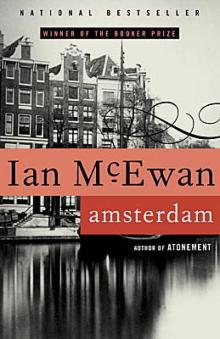 Amsterdam
Amsterdam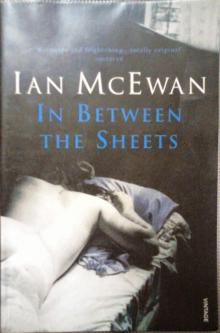 In Between the Sheets
In Between the Sheets Atonement
Atonement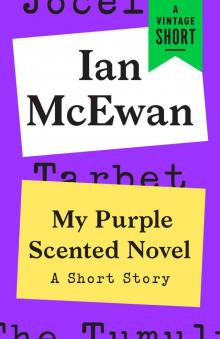 My Purple Scented Novel
My Purple Scented Novel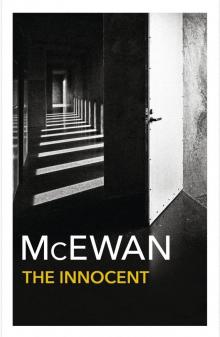 The Innocent
The Innocent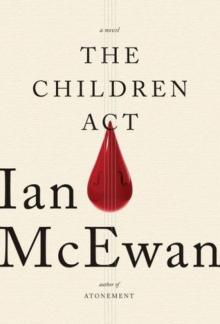 The Children Act
The Children Act Enduring Love
Enduring Love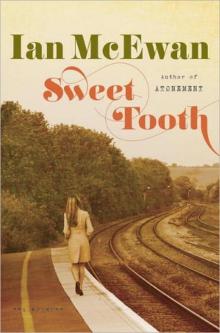 Sweet Tooth
Sweet Tooth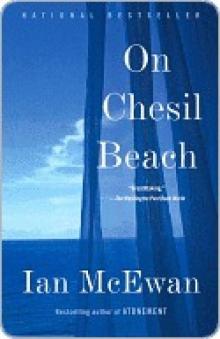 On Chesil Beach
On Chesil Beach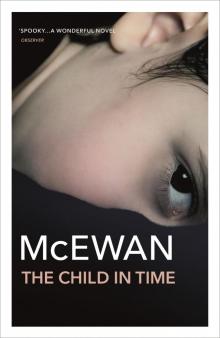 The Child in Time
The Child in Time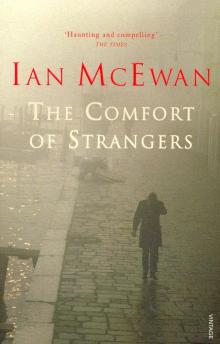 The Comfort of Strangers
The Comfort of Strangers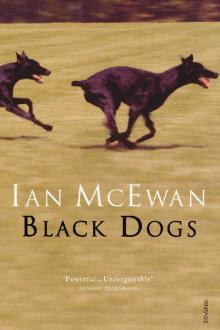 Black Dogs
Black Dogs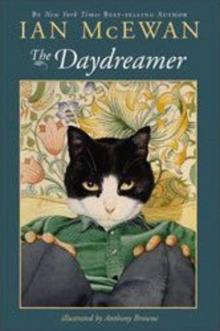 The Daydreamer
The Daydreamer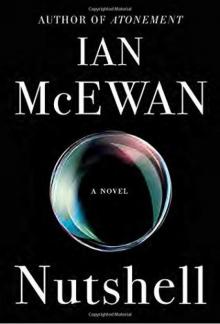 Nutshell
Nutshell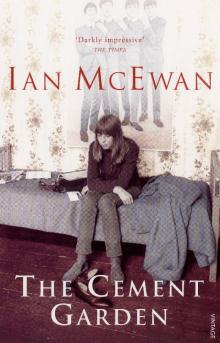 The Cement Garden
The Cement Garden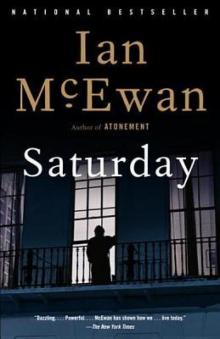 Saturday
Saturday Machines Like Me
Machines Like Me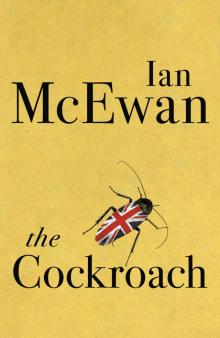 The Cockroach
The Cockroach The Ploughman’s Lunch
The Ploughman’s Lunch